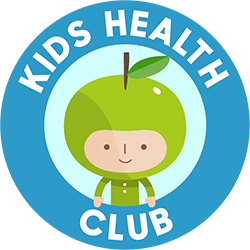4 Common Reasons for Fussy Eating

Picky Eating in Children
- Behavioural Factors: Children may be too busy or distracted to sit down and finish a meal.
- Feeling Full: Consuming juices, fizzy drinks, or other "empty calories" can fill them up.
- Constipation: A full intestine can leave little room for food.
- Nutrient Deficiency: Low levels of zinc, B12, or iron, all essential for a healthy appetite.
Busy Toddlers
Around ages 2-3, children often become choosier with food. Growth slows compared to the first two years, and their curiosity about the world makes sitting for meals less appealing.
Solution: Don’t worry; children usually start eating a greater variety of foods by age four. If your child prefers to graze, encourage it but work towards regular meals. Make mealtime engaging and stress-free. Use a high chair or let them sit on your lap, play with food, and enjoy the experience. Positive mealtime interactions can lead to better eating habits over time.
Filling Tummies with Nutritious Food
A child’s stomach is about the size of their fist. To fill it efficiently, prioritise nutrient-dense foods like sweet potatoes, broccoli, and beans over juices and fizzy drinks.
Solution: Offer only water before and after meals. Avoid filling their stomachs with high-calorie beverages that can reduce their appetite for nutritious food. Drinking water with meals should be minimal to avoid diluting digestive enzymes.
Daily Bowel Movements Encourage Hunger
Constipation, a common issue in children, can decrease appetite and reduce the size of their stomach. Signs include infrequent bowel movements or passing hard pellets.
Solution: Increase fiber and water intake by incorporating more vegetables, fruits, and whole grains into their diet. Replace white rice with brown rice and white pasta with whole-grain pasta. Half the plate should be vegetables, a quarter whole grains, and a quarter lean protein. For persistent constipation, consider adding coconut kefir or probiotics and consult a doctor if needed.
Ensuring Sufficient Nutrient Intake
Nutritional deficiencies can affect appetite. Signs like pale skin, low energy, white spots on nails, low frustration tolerance, slow skin healing, or frequent infections may indicate deficiencies in iron, B12, or zinc.
Solution: Consult a health practitioner for assessment and potential supplementation. Foods high in iron include meat, leafy greens, pumpkin seeds, nuts, and legumes. B12 can be found in eggs, meat, and fish, while zinc is abundant in whole grains and legumes. Children may need supplements during growth spurts, but always under medical supervision to avoid overdose.
By addressing these common causes of picky eating, you can help ensure your child gets the nutrients they need for healthy growth and development.


